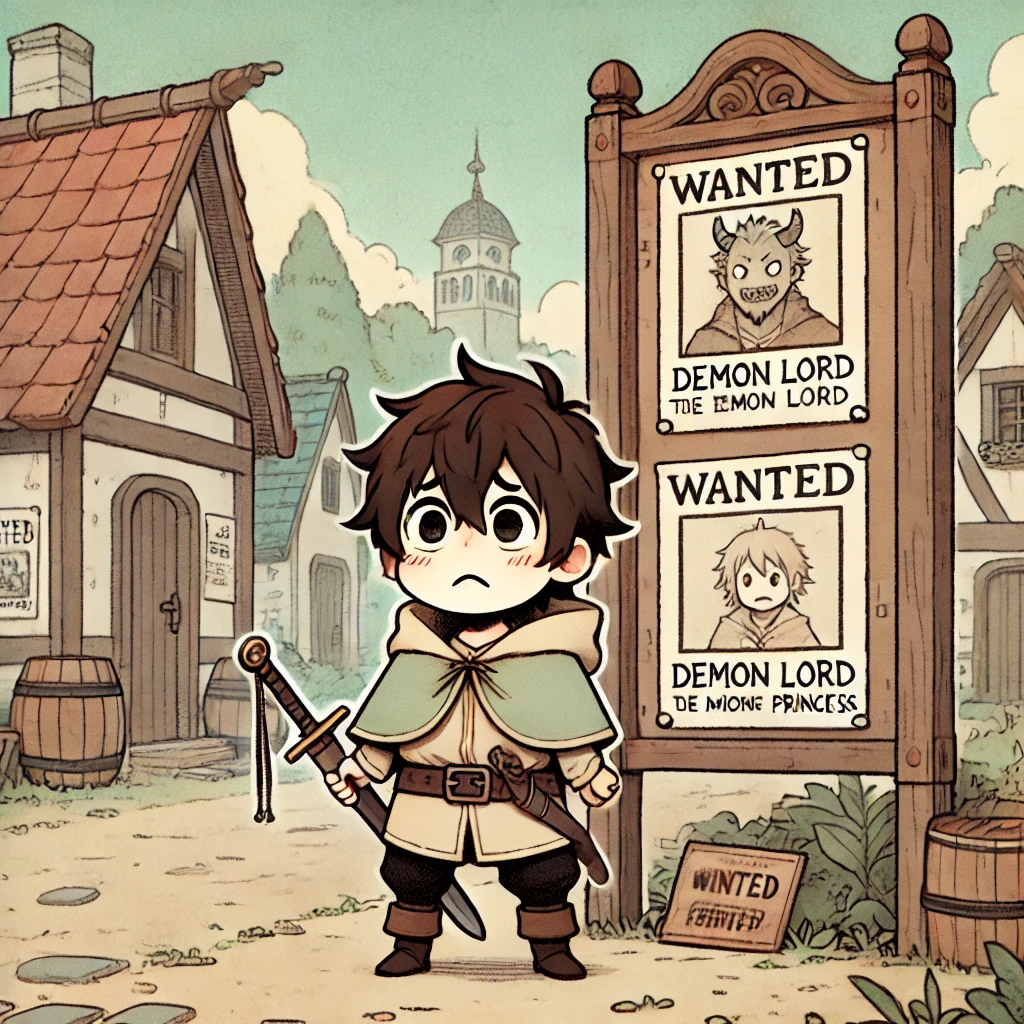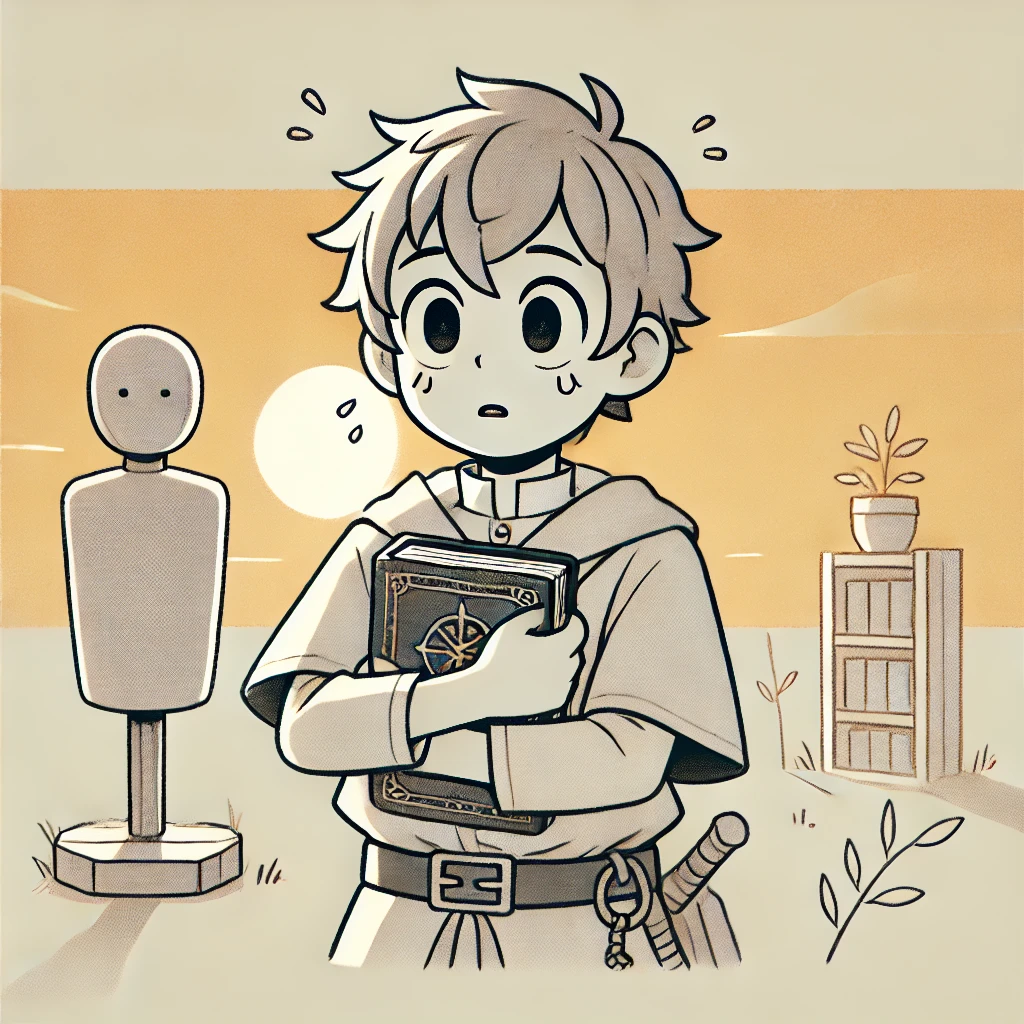บทที่ 1: การตัดสินใจของคนธรรมดา
โลกใบนี้ถูกปกคลุมด้วยความมืดมิด หลังจากจอมมารสังหารผู้กล้าและลักพาตัวเจ้าหญิงไป ทุกหนแห่งเต็มไปด้วยความหวาดกลัว แต่ข้าไม่คิดจะยอมแพ้ แม้จะเป็นเพียงชาวบ้านธรรมดาที่ไร้พรสวรรค์ ข้าก็จะเป็นผู้ที่กำราบจอมมารและช่วยเหลือเจ้าหญิงให้ได้ ตอนนี้ในใจมีเพียงคำถามเดียว: จะยอมจำนนต่อโชคชะตา หรือจะลุกขึ้นสู้?

การตัดสินใจครั้งแรกด้วย if-else
note
การแตกกิ่งด้วย if-else ในภาษา Rust คล้ายกับภาษาอื่นๆ แต่มีข้อแตกต่างคือ เงื่อนไข Boolean ไม่จำเป็นต้องอยู่ในวงเล็บ และแต่ละเงื่อนไขจะตามด้วยบล็อกของโค้ด นอกจากนี้ if-else ยังเป็น expression ที่ทุกกิ่งต้องส่งค่ากลับเป็นชนิดเดียวกัน
>
fn main() { let my_strength = 5; let demon_power = 100; if my_strength > demon_power { println!("This is impossible... I'm too weak"); } else { println!("Even though I'm weak... I won't give up!"); } }
จุดเริ่มต้นของการต่อต้านด้วย if let
note
ในบางกรณีการใช้ match เพื่อตรวจสอบค่าใน enum อาจจะเขียนยาวเกินไป if let จึงเป็นทางเลือกที่ช่วยให้เขียนโค้ดได้กระชับและอ่านง่ายขึ้น
>
fn main() { let ancient_book: Option<&str> = Some("The Forbidden Scroll"); if let Some(book) = ancient_book { println!("'{}'... The only way the commoner can fight the demon lord", book); } else { println!("There's no way out anymore..."); } }
ตัวอย่างการโค้ดเดิมที่ใช้ match
fn main() { let ancient_book: Option<&str> = Some("The Forbidden Scroll"); match ancient_book { Some(book) => println!("'{}'... The only way the commoner can fight the demon lord", book), None => println!("There's no way out anymore..."), } }
note
if let สามารถใช้กับ enum ได้เช่นกัน ทำให้การตรวจสอบค่าใน enum ทำได้ง่ายและกระชับขึ้น
>
enum Hero { Novice(u32), Specialist(String), Legendary, } fn main() { let hero = Hero::Novice(5); // ใช้ match match hero { Hero::Novice(power) => println!("Novice Hero, Power: {}", power), Hero::Specialist(weapon) => println!("Specialist Hero, Weapon: {}", weapon), Hero::Legendary => println!("Legendary Hero"), } // ใช้ if let ที่กระชับกว่า if let Hero::Novice(power) = hero { println!("Novice Hero, Power: {}", power); } // ตัวอย่างเพิ่มเติม let legendary = Hero::Legendary; if let Hero::Legendary = legendary { println!("Hero in the legend has appeared!"); } }
แบบฝึกหัดแห่งการเริ่มต้น:
บททดสอบความกล้าหาญ
ให้เติม syntax ที่ถูกต้องลงในช่องว่าง
fn main() { let fear_level = 10; ____ fear_level > 7 { println!("Fear is overwhelming..."); } ____ fear_level > 3 { println!("I must overcome my fear!"); } ____ { println!("I'm not afraid! I'm ready to face the demon lord!"); } }
บททดสอบการค้นพบ
ให้เติม syntax ที่ถูกต้องลงในช่องว่าง
fn main() { let forbidden_scroll: Option<&str> = Some("The Way to Defeat the Demon Lord"); if let ____ = forbidden_scroll { println!("Found hope in the scroll: {}", scroll); } else { println!("The scroll is empty... hope is still lost"); } }
บททดสอบการเลือกเส้นทาง
ให้เติม syntax ที่ถูกต้องลงในช่องว่าง
enum Path { Fight(u8), Hide, Surrender, } fn main() { let chosen_path = Path::Fight(9); if let Path::Fight(risk_level) = ____ { if ____ > 8 { println!("This path is too risky... but it's the only way"); } else { println!("Risk level: {} - Still hopeful", ____); } } else if let Path::Hide = chosen_path { println!("Hiding is not an option... the princess is waiting"); } else { println!("Giving up is a disservice to everyone's hope"); } }
"แม้จะเป็นเพียงคนธรรมดา แต่ข้าจะพิสูจน์ว่าโชคชะตาไม่ใช่สิ่งที่กำหนดไว้ตายตัว... ข้าจะต้องแข็งแกร่งขึ้น และเพื่อให้ทำเช่นนั้นได้ ข้าต้องฝึกฝนอย่างไม่มีที่สิ้นสุด..."

ติดตามการผจญภัยต่อใน บทที่ 2: วงจรแห่งการฝึกฝน ที่จะเผยถึงวิธีที่คนธรรมดาจะก้าวข้ามขีดจำกัดของตัวเอง...